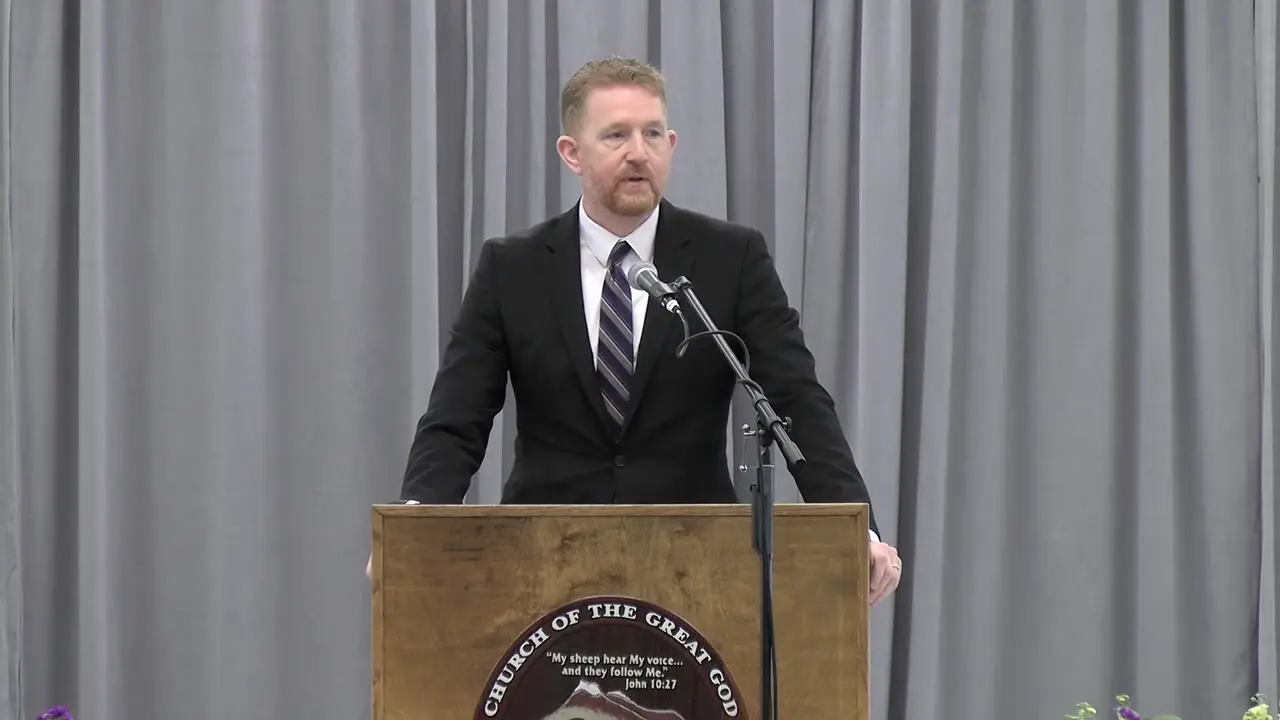Filter by Categories

God's Kingdom in the Parables (Part Three): Hidden Treasure
'Prophecy Watch' by David C. GrabbeIn Matthew 13, the hidden treasure the man finds provides the spiritual solution to the leaven - corruption - the woman hides in the three measures of meal.
Esther (Part Four)
Sermon by Richard T. RitenbaughSome regard approaching the Bible as literature to be demeaning, yet the literary approach can be a powerful tool to appreciating it more fully.

The Feasts of Tabernacles and Unleavened Bread
Feast of Tabernacles Sermon by David C. GrabbeIn this message, we learn the divine wisdom and unity within Almighty God's festivals (Leviticus 23) showing how each feast reveals His character, plan, and purpose for humankind. The speaker, using the method of comparison and contrast, exposes a chiastic structure or mirrored design connecting the spring and fall festivals, particularly Unleavened Bread and Tabernacles, both centering on deliverance, dwelling, and dependence on God, forming a complete picture of salvation through Christ. The pattern of one day followed by seven (Passover/Unleavened Bread) and seven days followed by one (Tabernacles/Last Great Day) symbolized the perfection and symmetry of His redemptive plan. Unleavened Bread focuses upon cleansing, sincerity, and feeding on Christ, the Bread of Life. Consequently, when we remove food from our dwellings, we purify every sphere of authority under God, thereby building a stable spiritual house upon Christ. Tabernacles, in contrast, emphasizes impermanence and humility, dwelling in temporary booths, reminding us of our dependence on God's daily provision in the wilderness. Together the permanence of houses and the transience of booths teach us that true security lies not in possessions or comfort but in Almighty God's sustaining presence. The physical symbols of food and dwelling illustrate some divine paradoxes. During Unleavened Bread, food lacks leaven—self-sufficiency and sin—but during Tabernacles, housing lacks permanence—worldly security and control. Through abundance and lack, permanence and transience, God's people learn to dwell in His presence, feed on His Word, and trust His timing.
Tabernacles and Unleavened Bread (2019)
Sermonette by David C. GrabbeBoth Tabernacles and Unleavened Bread keep us off balance so that we remain humble, seek stability, and trust in God's providence for our ultimate destiny.
Esther (Part Five)
Sermon by Richard T. RitenbaughGod allows each of us to experience trials and tests to humble us, leading us to repent, obey and trust, followed by an often-dramatic deliverance and joy.

Structure and Sovereignty in Daniel 2-7
Sermon/Bible Study by Richard T. RitenbaughDaniel chapters 2-7 form a chiastic (X shaped) structure. Chapters 2 and 7, 3 and 6, and 4 and 5 are paired and mirrored, reinforcing significant themes.

God's Kingdom in the Parables (Part Four): The Pearl, the Dragnet, and the Householder
'Prophecy Watch' by David C. GrabbeJesus' parables of the Pearl of Great Price, the Dragnet, and the Householder resolve the problems raised in their corresponding earlier parables.

Prepare to Meet Your God! (Part Six): Complacency and Laodiceanism
Article by John W. Ritenbaugh and Richard T. RitenbaughThe prophet Amos preached a warning message from God against the complacency of the Israelites toward God and His way. Our nations should heed his warning.
'I Was Only Joking!'
Sermonette by James C. StoertzWe are encouraged to be cautious with our use of humor and types of phrasing so that we do not cause discord that can lead to a break in relations with others.
Why 153 Fish? (Part One)
CGG Weekly by David C. GrabbeWhy did Jesus provide exactly 153 fish? Apparently, the number stuck in John's mind for decades. This number must hold some significance, but what is it?
Why 153?
Sermonette by David C. GrabbeThe first sign in the book of John corrected the physical need for wine; the eighth sign of 153 fish corrected a spiritual need on the part of God's people.